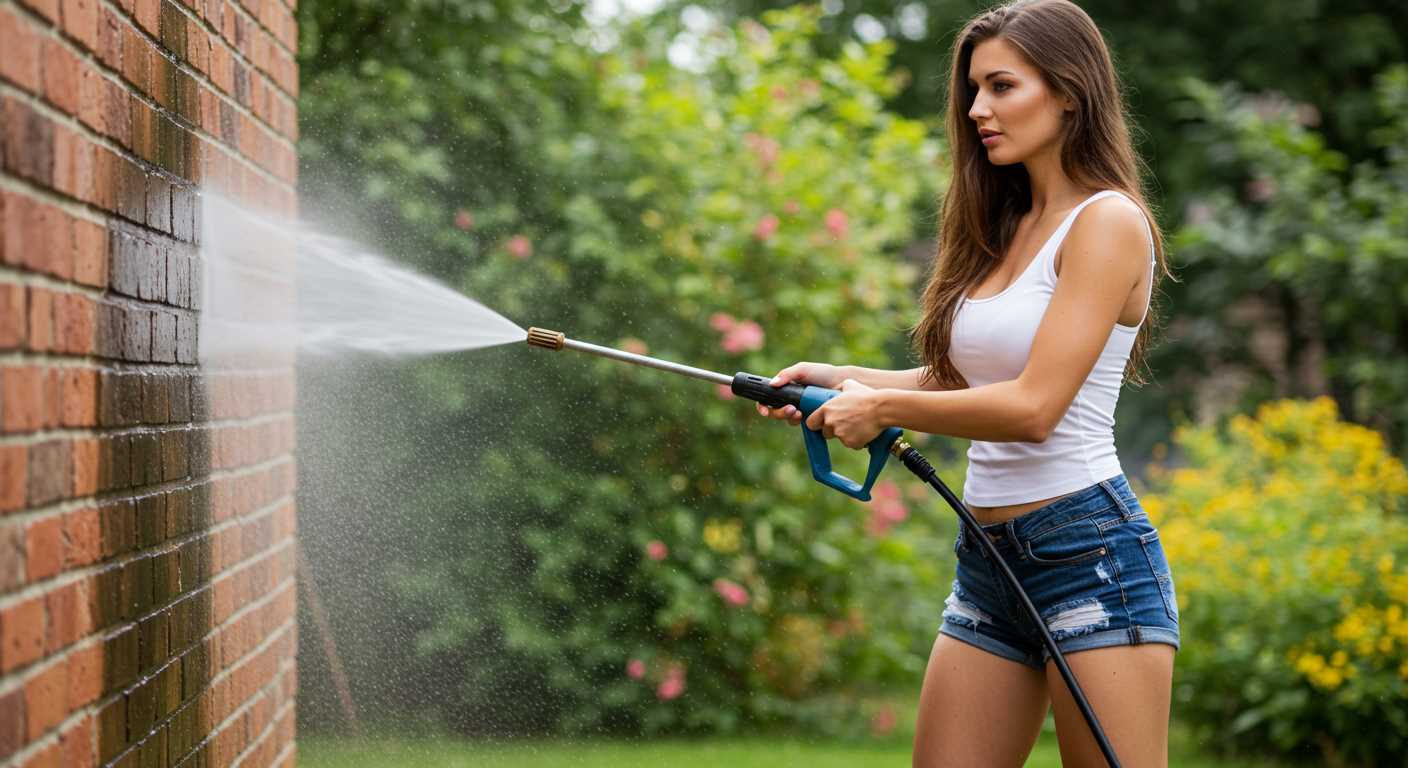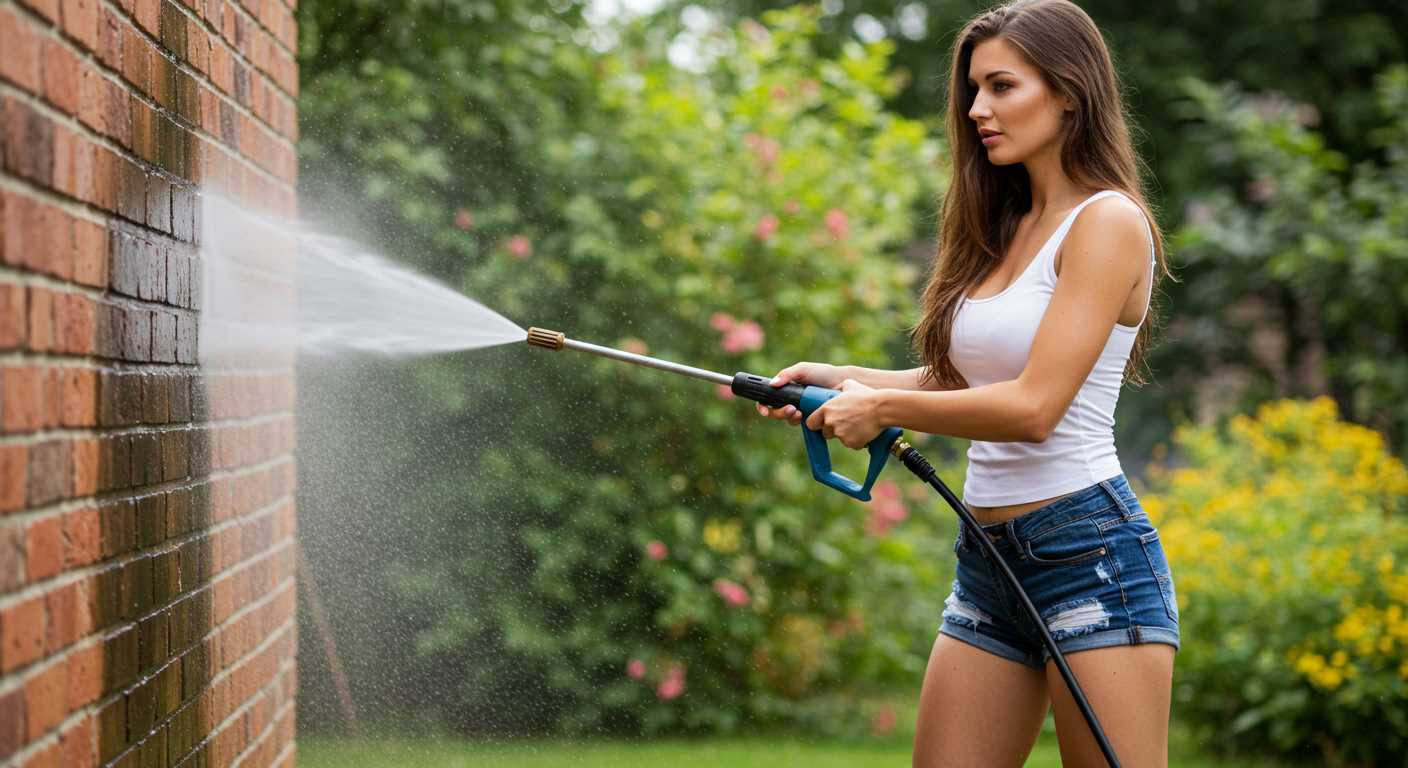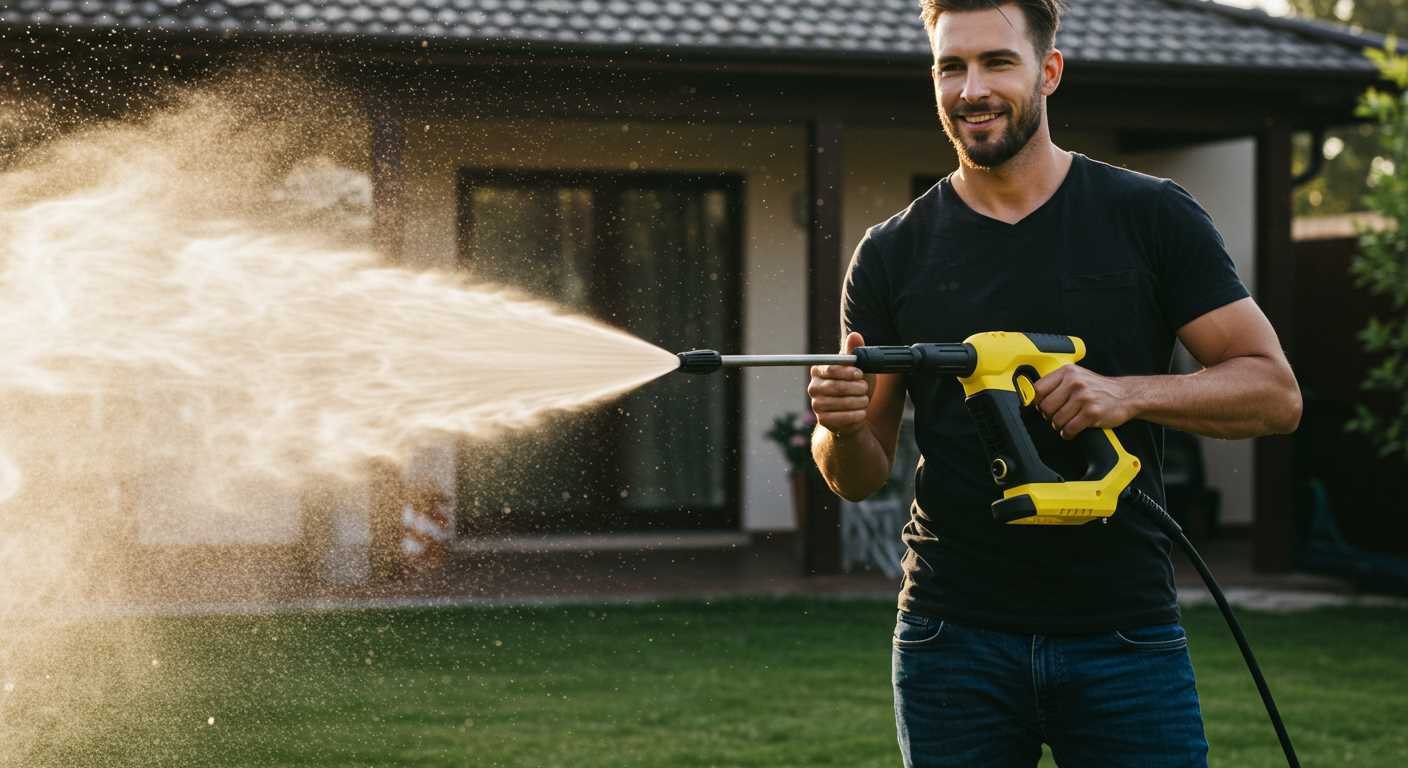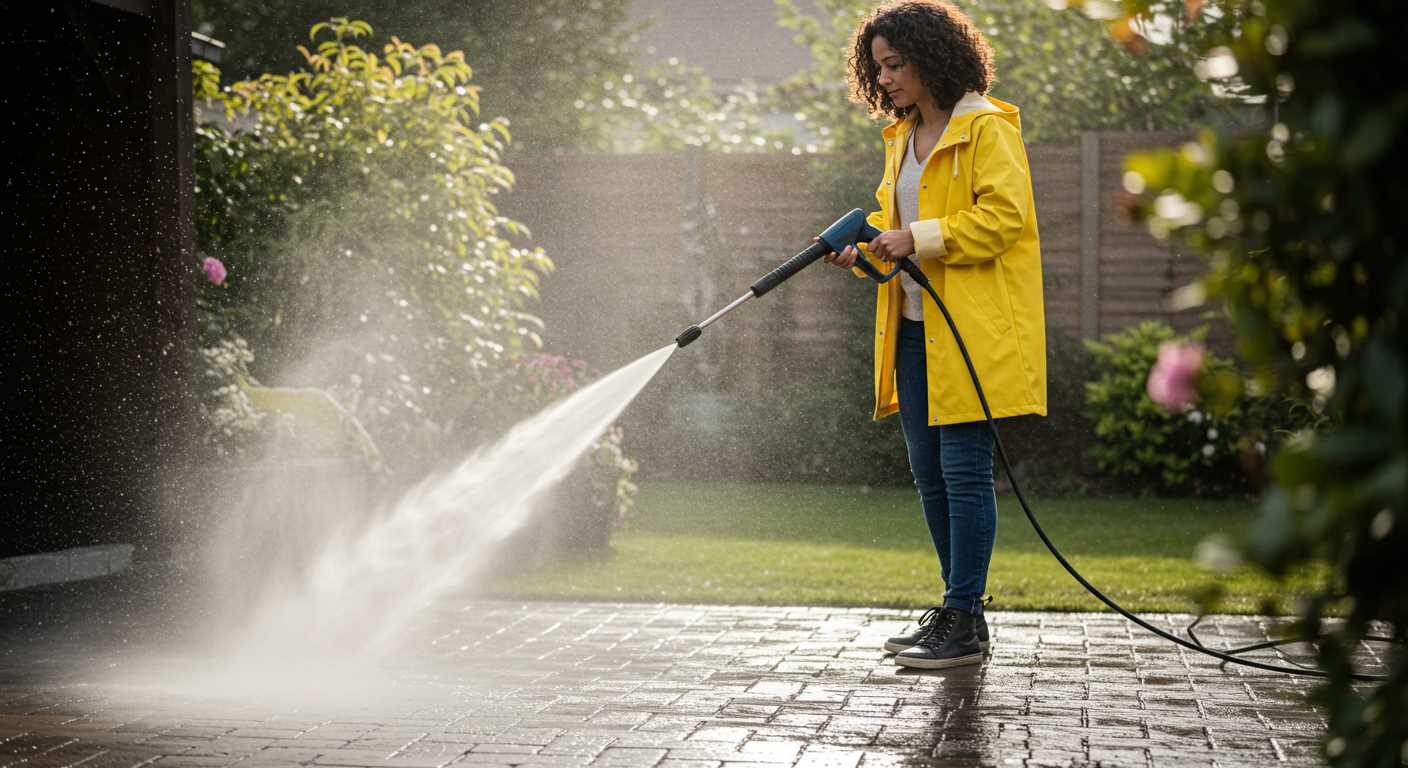




When it comes to maintaining a clean and professional appearance for your business, a commercial pressure washer is an invaluable tool. However, understanding the right PSI (pounds per square inch) for your specific needs can be a bit daunting. In this article, I will break down the importance of PSI in commercial pressure washing and help you determine the best pressure settings for various cleaning tasks.
This article is designed for business owners, facility managers, and anyone involved in the maintenance of commercial properties. Whether you’re dealing with concrete surfaces, vehicles, or delicate outdoor furniture, knowing the optimal PSI will ensure efficient and effective cleaning without damaging your assets.
Throughout this article, I will explore different PSI ratings suited for various applications, highlight the advantages of using the correct pressure, and provide guidelines on selecting the right commercial pressure washer. By the end, you’ll have a clearer understanding of how to choose the best PSI for your cleaning needs, allowing you to maintain a pristine environment for your business.
Understanding PSI Ratings and Their Importance
When it comes to selecting a commercial pressure washer, understanding the PSI (pounds per square inch) rating is crucial. PSI measures the pressure of the water being expelled from the machine. This metric directly impacts the effectiveness of the pressure washer in tackling various cleaning tasks. Higher PSI ratings typically indicate more powerful machines capable of removing tough stains, grease, and dirt.
It’s essential to match the PSI rating with the specific cleaning requirements of your business. Using a machine with an excessively high PSI for delicate surfaces can lead to damage, while low PSI may not adequately clean more robust materials. Therefore, comprehending the significance of PSI ratings ensures you choose the right equipment for the job.
Factors Influencing PSI Selection
Several factors should be considered when determining the appropriate PSI for a commercial pressure washer:
- Surface Type: Different surfaces require different pressure levels; for instance, concrete and brick can withstand higher pressures compared to wood or painted surfaces.
- Cleaning Task: The nature of the cleaning task, such as removing oil stains or mildew, will dictate the necessary PSI.
- Water Temperature: Hot water can be more effective at lower PSI, as it helps to break down grease and grime.
In summary, understanding PSI ratings is vital for selecting the right commercial pressure washer. This knowledge not only ensures effective cleaning but also helps in prolonging the life of both the surfaces being cleaned and the equipment itself.
Optimal PSI Levels for Different Cleaning Tasks
When selecting the appropriate PSI (pounds per square inch) for a commercial pressure washer, it’s essential to understand that different cleaning tasks require varying levels of pressure. Using the right PSI can significantly enhance cleaning efficiency while preventing damage to surfaces. Knowing the optimal PSI for specific tasks not only ensures effective cleaning but also prolongs the life of both the equipment and the surfaces being cleaned.
For instance, light cleaning tasks such as washing cars or outdoor furniture typically require lower PSI levels, while more demanding tasks like removing graffiti or cleaning concrete surfaces necessitate higher pressure. This differentiation is crucial for achieving the best results without causing harm.
Guidelines for PSI Levels
Here are some general guidelines for selecting the appropriate PSI for various cleaning tasks:
- Car Washing: 1200 – 1900 PSI
- Deck Cleaning: 1500 – 3000 PSI
- Driveway and Concrete Cleaning: 2500 – 3000 PSI
- Graffiti Removal: 3000 – 4000 PSI
- Roof Cleaning: 1200 – 1500 PSI
It’s important to note that while higher PSI can effectively remove stubborn dirt and stains, it can also damage delicate surfaces. Therefore, when in doubt, it is advisable to start with a lower pressure and gradually increase it as needed, ensuring that surfaces are not compromised during the cleaning process.
Factors Influencing PSI Selection for Commercial Use
When selecting a pressure washer for commercial applications, the pressure measured in pounds per square inch (PSI) plays a crucial role in determining its effectiveness. The appropriate PSI level can greatly influence the efficiency of cleaning tasks, making it essential for operators to understand the factors that affect this selection. Different cleaning jobs require varying levels of pressure to achieve optimal results without damaging surfaces.
One of the primary considerations when choosing the right PSI is the type of surface being cleaned. For example, delicate surfaces such as painted wood or thin glass may require lower PSI to avoid damage, while industrial surfaces like concrete or metal can withstand higher pressures. Understanding the material and its condition is vital to ensure effective cleaning without compromising the integrity of the surface.
Key Factors to Consider
- Type of Cleaning Task: Different tasks, such as graffiti removal, vehicle cleaning, or surface preparation, necessitate varying PSI levels.
- Surface Material: Soft materials need lower PSI, while hard materials can handle higher pressures.
- Presence of Stains and Dirt: Heavily soiled areas may require higher PSI to effectively remove stubborn grime.
- Water Flow Rate: The combination of PSI and water flow rate (measured in gallons per minute) affects the cleaning power of the pressure washer.
Ultimately, selecting the right PSI is about balancing the cleaning power required for the task at hand with the risk of damaging the surfaces involved. Proper understanding and assessment of these factors can lead to more efficient and effective cleaning outcomes in commercial settings.
Comparing Electric vs. Gas-Powered Washers: PSI Considerations
When it comes to selecting a pressure washer for commercial use, understanding the differences between electric and gas-powered models is crucial. One of the most significant factors to consider is the Pounds per Square Inch (PSI), which directly affects the cleaning power and efficiency of the machine. Both types of washers have their unique advantages and limitations, making it essential to evaluate which option aligns best with your specific needs.
Electric pressure washers typically offer a lower PSI range compared to their gas counterparts. They are often suitable for light to medium-duty tasks, such as cleaning vehicles, patios, and garden furniture. On the other hand, gas-powered washers are known for their higher PSI levels, making them more effective for heavy-duty applications like blasting away tough grime, oil stains, and larger surfaces. However, the higher PSI comes with considerations regarding the weight, mobility, and maintenance of gas models.
PSI Comparison
- Electric Washers: Generally operate within the range of 1,300 to 2,500 PSI.
- Gas Washers: Can reach anywhere from 2,000 to over 4,000 PSI.
While a higher PSI indicates stronger cleaning power, it is important to match the PSI level to the task at hand. Using a gas-powered washer with excessive PSI on delicate surfaces can lead to damage, while an electric washer may struggle with tough cleaning jobs. Therefore, consider the materials and surfaces you will be cleaning when choosing between electric and gas options.
In summary, both electric and gas-powered pressure washers have their place in the commercial sector, with PSI being a key factor in their effectiveness. Assessing the specific cleaning requirements will ensure you select the optimal washer for your business needs.
Common Misconceptions About PSI in Pressure Washing
When it comes to pressure washing, many users often focus solely on the PSI (pounds per square inch) rating of a machine, assuming that higher numbers equate to better performance. This belief leads to a range of misconceptions that can affect the effectiveness of cleaning tasks and even damage surfaces.
One prevalent misconception is that a higher PSI always means a more effective cleaning solution. While it is true that PSI indicates the pressure at which water is delivered, it does not account for other critical factors such as flow rate, nozzle type, and the specific cleaning task at hand. Understanding these elements is essential for achieving optimal results without causing harm.
Understanding the Role of PSI
While PSI is an important measurement, relying solely on it can be misleading. Here are some common misconceptions about PSI in pressure washing:
- Higher PSI Equals Better Cleaning: This is not always accurate. Some surfaces require lower pressure to avoid damage, and using high PSI can strip paint or etch softer materials.
- All Cleaning Tasks Require High PSI: Different tasks require different pressures. For instance, washing a car typically needs a lower PSI than cleaning a driveway.
- PSI Alone Determines Effectiveness: Other factors, such as water temperature and cleaning solutions, play significant roles in the cleaning process. A pressure washer with moderate PSI but good flow rate and hot water can outperform one with high PSI.
In conclusion, while PSI is an important factor in selecting a pressure washer, it should not be the only consideration. Understanding the specific requirements of your cleaning tasks will lead to better and safer results.
Recommended PSI for Specific Industries and Applications
When selecting the appropriate PSI for your commercial pressure washer, it is crucial to consider the specific needs of your industry or application. Different sectors have varying requirements, and understanding these can help you choose the most effective pressure settings for optimal cleaning results.
Below, we outline the recommended PSI ranges for various industries and applications, ensuring you can tailor your pressure washing efforts to meet the demands of your specific tasks.
- Automotive Industry:
- Car washing: 1200-2000 PSI
- Fleet washing: 2500-3000 PSI
- Construction and Heavy Equipment:
- Surface preparation: 3000-4000 PSI
- Equipment cleaning: 2500-3500 PSI
- Food Industry:
- Kitchen equipment: 1500-2500 PSI
- Exterior cleaning: 2000-3000 PSI
- Residential Cleaning:
- Decks and patios: 1500-2500 PSI
- Siding and roofs: 1200-2000 PSI
- Industrial Cleaning:
- Factory floors: 3000-4000 PSI
- Machinery: 2500-3500 PSI
In summary, understanding the recommended PSI for specific industries and applications is essential for achieving effective and efficient cleaning. By selecting the appropriate pressure settings based on the task at hand, you can ensure optimal performance and longevity of both your equipment and surfaces being cleaned.
Top 10 Best Psi For Commercial Pressure Washer




Best Psi For Commercial Pressure Washer
Features
| Part Number | 1 |
| Model | HLW-GYQ-5000PSI-1 |
| Color | Black-orange |
Features
| Part Number | 80150 |
| Model | 80479 |
| Color | Silver |
| Size | 31 Inch |
Features
| Part Number | WXNYPWHose-50FT |
| Model | WXNYPWHose-50FT |
| Color | Black |
Features
| Part Number | 310448028 |
| Model | RY31RN01VNM |
| Color | Green |
Video:
FAQ:
What is the recommended PSI for a commercial pressure washer?
The recommended PSI for a commercial pressure washer typically ranges from 3000 to 4000 PSI. This level of pressure is generally sufficient for most commercial cleaning tasks, including heavy-duty jobs like removing grease, grime, and dirt from concrete surfaces, vehicles, and industrial equipment. However, the exact PSI you need may depend on the specific application and the type of surface being cleaned.
How does PSI affect the cleaning capability of a pressure washer?
PSI, or pounds per square inch, directly influences the cleaning power of a pressure washer. Higher PSI means more forceful water pressure, which can remove tougher stains and debris more effectively. Conversely, lower PSI might be suitable for delicate surfaces that could be damaged by excessive pressure. It’s important to match the PSI to the cleaning task to achieve optimal results without causing damage.
Are there any safety considerations when using a high PSI pressure washer?
Yes, safety is paramount when using a high PSI pressure washer. Users should always wear protective gear, including goggles and gloves, to shield against flying debris and high-pressure water. It’s also crucial to be aware of the surroundings and ensure that no one is within the spray zone. Additionally, users should never point the nozzle at themselves or others, as the high-pressure water can cause serious injuries. Proper training on how to handle the equipment safely is also recommended.
Can you use a pressure washer with lower PSI for commercial tasks?
While it is possible to use a pressure washer with lower PSI for certain commercial tasks, it may not be as effective for heavy-duty cleaning jobs. Pressure washers with a lower PSI, typically around 1500 to 2500 PSI, are better suited for lighter cleaning tasks, such as washing vehicles or cleaning patios. For more demanding applications, such as removing tough stains from concrete or dealing with industrial equipment, a higher PSI is generally more effective.
What additional features should I look for in a commercial pressure washer besides PSI?
Besides PSI, consider features such as flow rate (measured in gallons per minute), which affects the washer’s cleaning efficiency. Look for adjustable nozzles or spray tips that allow you to control the spray pattern and pressure, making it versatile for different tasks. A sturdy frame and wheels for mobility are also important for commercial use, as well as a reliable engine or motor. Finally, check for warranty and service options, as these can be indicative of the manufacturer’s confidence in their product’s durability.




.jpg)


